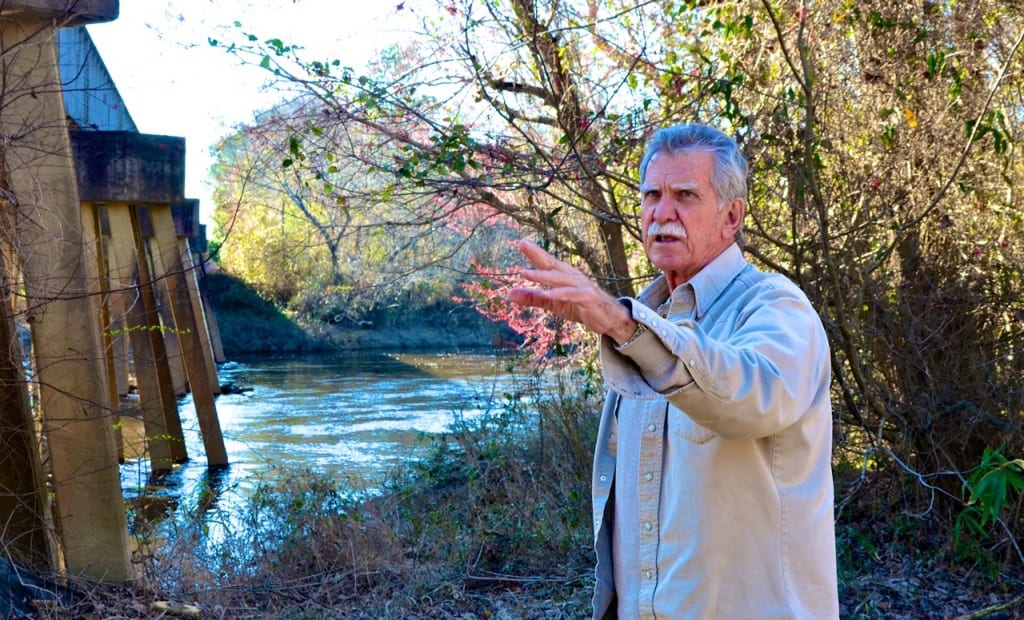
Campground owner Larry Godfrey worries about a train derailment catastrophe in the Escatawpa River on his property: Glynn Wilson
Watch and Share the Video –
By Glynn Wilson –
MOBILE, Ala. — Larry Godfrey owns the Escatawpa Hollow Campground and Canoe Rental along the Escatawpa River on the Alabama-Mississippi line just about 40 miles down the Canadian National Railroad line from New Augusta, Mississippi, where a train carrying tar sands crude oil and other hazardous materials derailed back in late January.
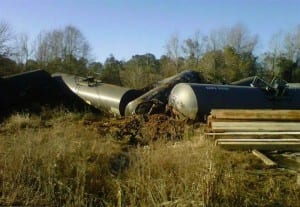
A Canadian National Railroad train carrying tar sands crude derailed in New August, Mississippi, in January
He made the drive up a few days after that disaster to see and smell the damage, in part because he’s worried a similar catastrophe could happen along the train trestle that runs across the river right through his property where he retired from International Paper Company.
“We don’t have a chance if this thing derails,” he said in a video interview by the trestle. “If this happens, with the product that’s coming across this rail right now, it’s definitely going to be a catastrophic situation, without a doubt.”
When asked by the Mobile Bay Sierra Club’s conservation chair David Underhill whether such an occurrence would render his home and campground uninhabitable, he said, “No question.”
While protesters continue to fight the Keystone XL tar sands pipeline snaking its way from Canada to the Texas Gulf Coast, the dirty, heavy crude is making its way to the Gulf Coast by the train load to Mobile, Alabama, where political and market pressures continue to turn the port city into a major import and export hub for the oil NASA scientist James Hansen called a “game changer” for climate change.
The Obama administration is still teetering back and forth on the pipeline issue, neither giving the oil industry or labor unions exactly what they want in a blanket approval for the $5.4 billion project or environmentalists a flat out denial from the White House. Critics indicate that extraction of tar sands emits three times more planet-warming carbon dioxide than conventional crude oil, yet mining and development of the resource continues unabated.
Meanwhile the fight over the pipeline has increased the pressure to move the gritty, thick oil by rail, and the prime destination is the port of Mobile since the Canadian National Railroad runs right down to the coast along the city’s riverfront.
“That’s it,” Godfrey said.
Underhill says what’s really going on is that city officials in Mobile, greedy for the business, and oil industry officials, greedy for profits, want to bring in all the international oil they can not only by rail from Canada but by tanker ships from Venezuela and other countries to keep the constant movement of oil going both ways, not just to Gulf Coast refineries but to international ports in India and China (see video interview).
“They put the Canadian tars sands into the tanker ships bound for China so they have full tankers coming and going to the port,” Underhill said. “It’s coming to Mobile so it can get to China, but they don’t want to bring in an empty tanker to fill it up. So they bring in a full tanker of standard crude to put into the pipeline to Pascagoula. That’s why they don’t take the train directly to Pascagoula.”
“That’s right,” Godfrey said. “The Chinese want it.”
Concerns about the safety of trains after a series of recent derailments in Quebec, Arkansas, Alabama and Mississippi probably won’t slow the growth of the shipments or the pressure to build new storage tank farms and pipelines to move it to refineries — unless the Obama administration decides to intervene, state and local officials stand up to the pressure, or activists get more creative in their efforts to stop it.
Even historic minority communities such as Mobile’s Africatown are feeling the pressure and trying to figure out how to fight what they perceive to be just another in a long line of racist, classist, environmental injustices thrust upon poor communities for generations.
As for Mr. Godfrey, he has a theory about why all the trains are running off the tracks. It has to do with new, longer rail cars designed for diluted or heated tar sands crude having trouble making the curves on old tracks designed for an older era of rail transportation (see video interview). It also involves the expansion of the steel tracks in the heat of summer and the contraction of the tracks in the cold of winter, and the inertia of the trains as they come around curves. There is a sharp curve in the track just northwest of his campground.
“When they come around a curve, those wheels have a tendency to jump that track,” he said. “That’s what I’m afraid of.”
What’s making the problem worse, he said, is the lack of maintenance on the part of railroad companies or an upgrade of the train tracks and routes.
“The railroad would rather (pay to) clean up (a disaster) than to fix the problem,” he said. “It’s cheaper.”
When he worked for International Paper Company for 27 years, he saw that due to the calculation of the value of a human life for the purposes of legal liability for injuries on the job, the company put an exact price on a life. He says railroads and pipeline companies do the same thing.
“International Paper figured a man’s live in that industry was worth $57,000,” he said. “That’s minuscule. They can pay that and keep right on trucking.”


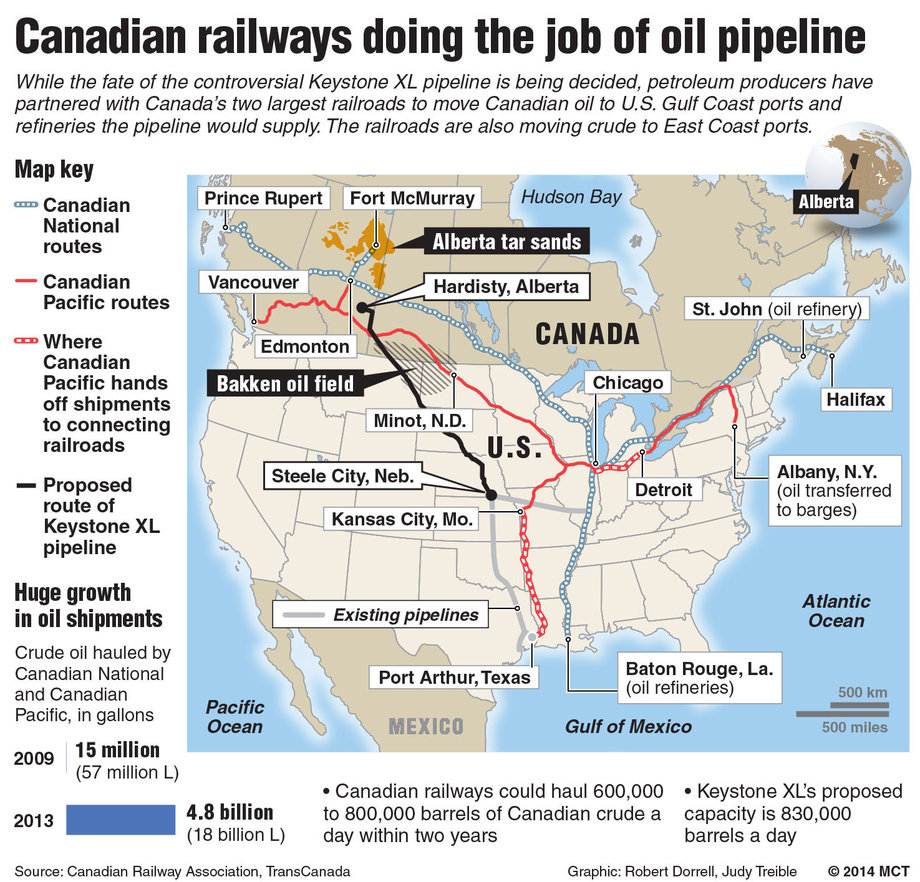
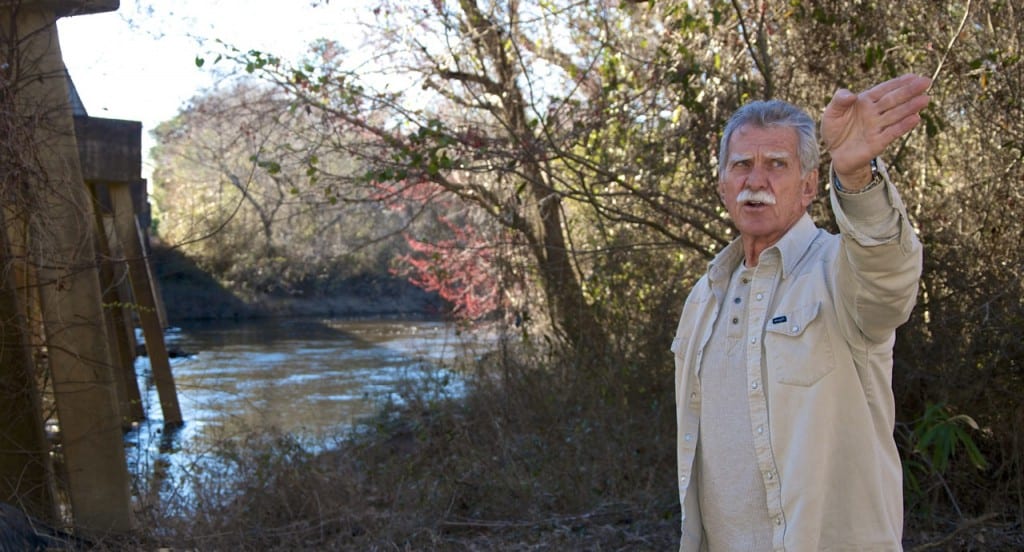
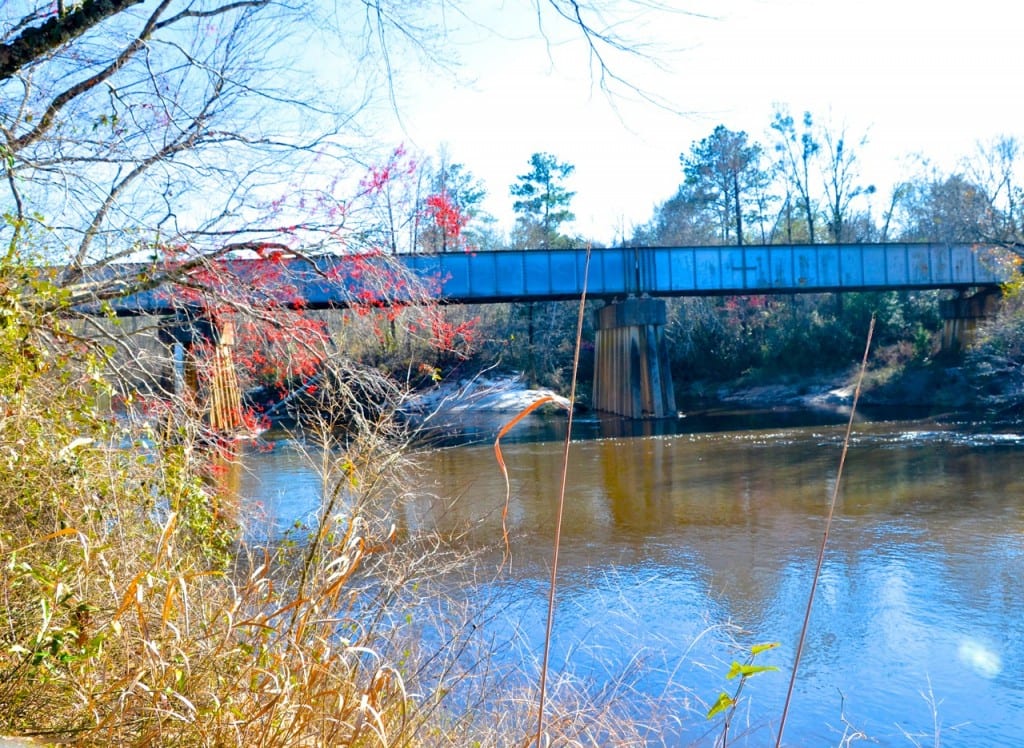
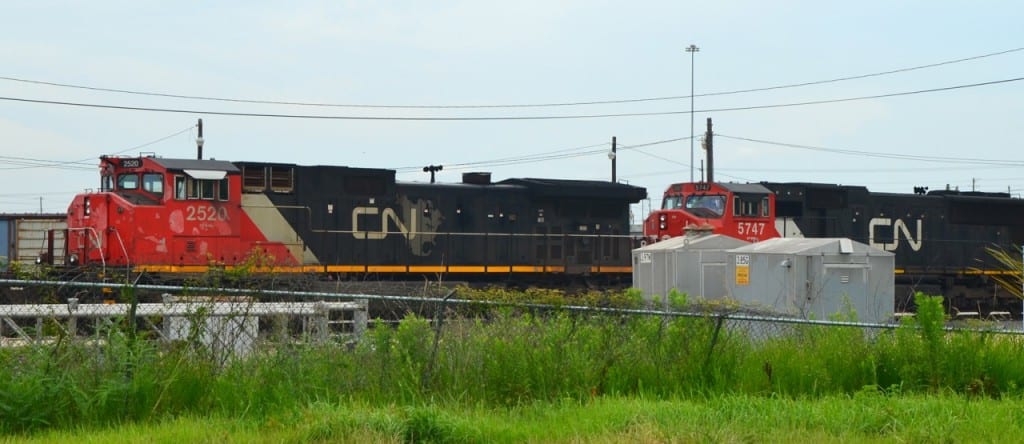
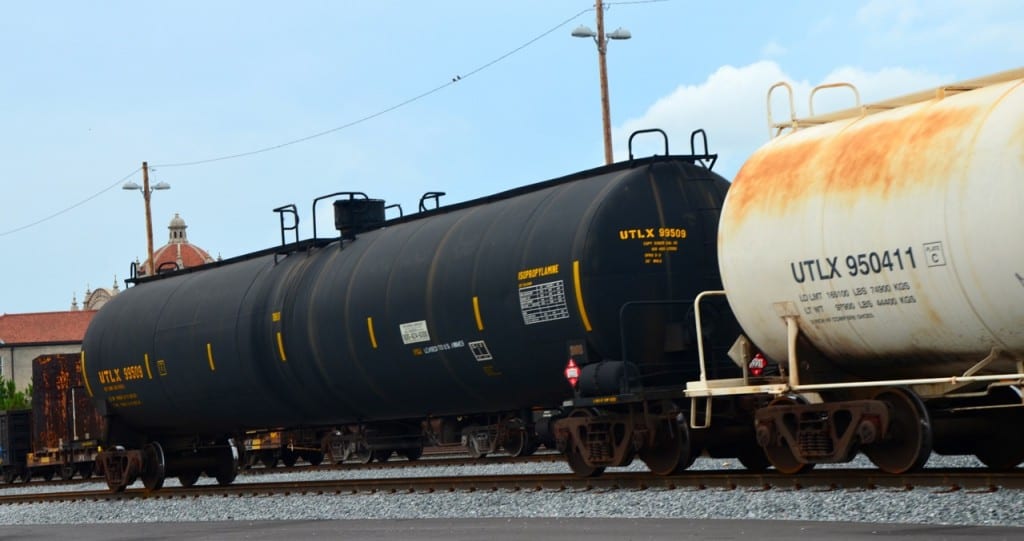
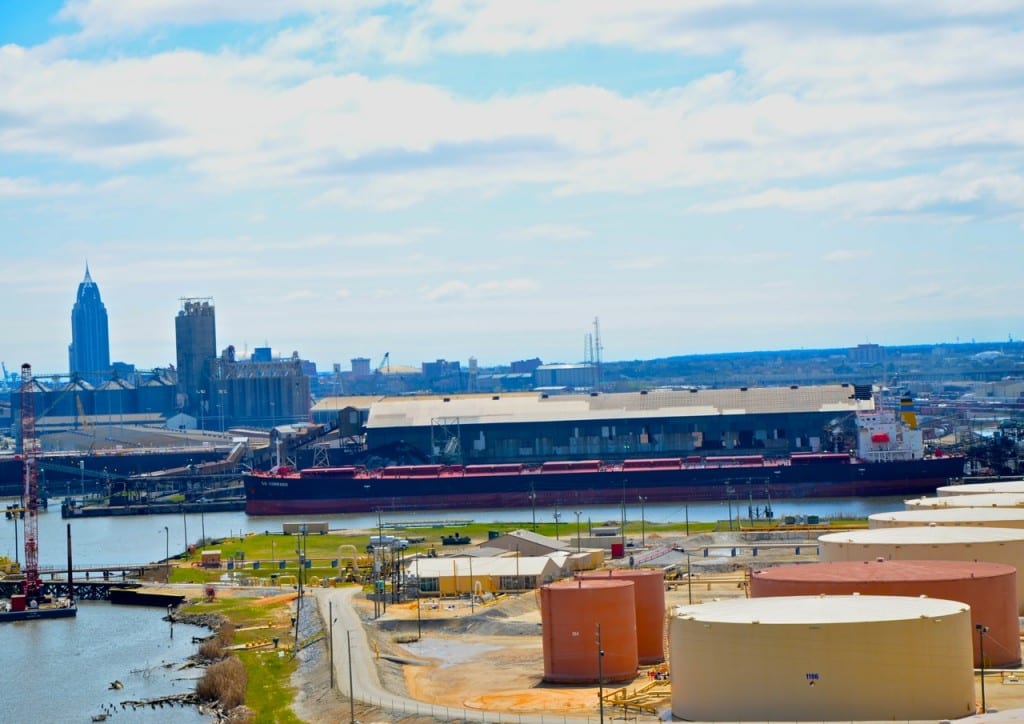



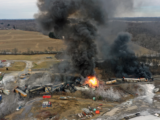








Excellent reporting. The tar sands industry is progressing on many fronts but the public is becoming more aware one train derailment after another. The poor maintenance and update of rail lines invite disaster. Property devaluation and water contamination will follow wherever the tracks are laid. Why is a foreign country allowed to do this? Clean water is more valuable than gold and humans and creatures cannot live without it. Shouldn’t the protection of the environment be a function of the National Security Agency? Tar Sands Oil going to China is something Canada should do from their own ports. There is no reason for the crude to come to Texas, Louisiana or Alabama refineries or ports. It’s time this madness ends.
Canadians are fighting it near their ports, but pro Big Business Republicans in a place like Mobile are more than happy to capitalize on the business — all while trying to go after tourists. Not sure that will work, although I guess you can fool some of the people, some of the time.